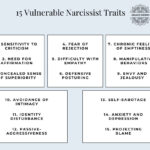Do Narcissists Cry? Fake Crying Or Genuine?
Do narcissists cry? I remember asking this intriguing question when I was still in a relationship with a narcissist. One day he also faked having a seizure and a fake panic attack just to manipulate me in the middle of an argument – yep I’ve seen it all!
Just like me, you might be wondering whether it’s narcissist fake crying or genuine tears that are being shed by your partner, friend, or family member.
In this blog post, we will explore the different scenarios in which a narcissist may cry. We will delve into their motives and intentions behind their tears, seeking to understand the underlying reasons for their emotional displays.
If you’d like to go deeper on this topic and truly understand how narcissists think and behave, check out my mini-course which will answer all your questions:
How to tell if it’s narcissist fake crying?
Detecting whether a narcissist’s tears are genuine or manipulative can be challenging, but there are certain signs to look out for. Narcissists often use fake crying as a tool to control and manipulate others, as indicated in the narcissist checklist.
Pay attention to their body language and facial expressions, as they may not align with genuine distress. Notice if their tears abruptly stop or start on cue, or if they quickly regain composure once they achieve their desired outcome.
Additionally, observe if their tears only occur in specific situations where they can benefit from sympathy or maintain control. Developing a keen sense of observation can help unveil the narcissist’s façade of fake crying.
Signs of narcissist fake crying
- Inconsistent or exaggerated display of tears: The narcissist’s tears may appear forced or lack emotional authenticity. They may suddenly turn on or off the tears as if on cue, without a gradual build-up or genuine emotional expression.
- Lack of accompanying emotional distress: While tears are commonly associated with genuine emotional pain, narcissists may display tears without exhibiting the corresponding emotional turmoil or distress expected in such situations.
- Quick recovery and regained composure: After shedding tears, the narcissist may swiftly regain their usual demeanor, appearing composed and unaffected by the emotional episode. Their emotional shift may seem abrupt and disconnected from the intensity of their tears.
- Strategic timing: Narcissist fake crying often coincides with situations where they seek attention, sympathy, or control. They may use tears to manipulate others, elicit a desired response, or divert attention away from their own actions or shortcomings.
- Inconsistencies in body language: Observe the narcissist’s body language during the crying episode. Signs of incongruence, such as a lack of genuine sadness or distress in their posture, facial expressions, or tone of voice, can indicate that the tears are insincere.
- Lack of empathy for others’ emotions: Narcissists typically struggle with genuine empathy and may not display emotional attunement to others’ feelings, even while supposedly crying. Their focus may remain primarily on themselves and their own agenda.
Related: 12 Traits of a Narcissist
Can narcissists cry?
While the emotional landscape of narcissists is often characterized by a lack of genuine empathy, there are instances when tears may be shed.
Understanding the circumstances behind their tears can provide valuable insights into the intricacies of their behavior.
Narcissists may cry to manipulate you. They can use their tears as a tactic to garner sympathy or control, or it may stem from feelings of frustration, anger, or perceived victimhood.
However, it’s important to approach their tears with caution and discernment, as they can also be part of a calculated façade. Exploring the different scenarios in which narcissists cry sheds light on the complex emotional dynamics at play.
Related: Do Narcissists Feel Guilt?
When do narcissists cry?
Here are some situations that may prompt narcissists to cry:
- Embarrassment: Narcissists may cry when they feel exposed or humiliated, as it threatens their carefully crafted image of perfection and superiority. Their tears may be an attempt to elicit sympathy or divert attention from their perceived flaws.
- Frustration: When faced with situations that challenge their control or superiority, narcissists may cry out of frustration. These tears serve as a way to manipulate others into feeling sorry for them or giving in to their demands.
- Victimhood: Narcissists may cry to portray themselves as victims and gain sympathy from others. By playing the victim, they can manipulate those around them and maintain their sense of entitlement and power.
- Loss of Narcissistic Supply: When a narcissist experiences a loss or rejection of the attention, admiration, or validation they seek (known as narcissistic supply), they may cry as a way to manipulate others into providing the desired supply or to regain control in the relationship.
- Fear of Abandonment: Narcissists may cry when they fear losing a source of narcissistic supply, such as a romantic partner or a close friend. Their tears can be a manipulative tactic to guilt-trip others into staying or to regain control over the relationship.
Related: How to Deal with a Narcissist
Do narcissists cry when you leave them?
The answer to this question depends on several factors, including the severity of the Narcissistic Personality Disorder (NPD) and the specific circumstances. Some narcissists may genuinely cry out of despair, especially when faced with significant losses or challenges to their ego.
For instance, narcissists may cry when you leave them and end the relationship. However, it’s crucial to be cautious and not misconstrue their tears as a sign of genuine love or remorse.
Often, their tears stem from the fear of losing a source of narcissistic supply, rather than true emotional connection. Remember, protecting yourself should be the priority, and staying in such a relationship solely for their tears is not a valid reason.
Related: Divorcing a Narcissist
Understanding Narcissist Crying: Unveiling their Motives
We have explored the intricate dynamics of narcissistic behavior and learned how to discern between genuine emotional displays and manipulative tactics.
Recognizing the signs of narcissist fake crying empowers you to navigate relationships with narcissists more effectively, protecting your emotional well-being in the process.
To learn more about narcissist behaviors and characteristics, check out my mini-course on understanding the psychology behind narcissistic personality disorder.
FAQs
Yes, but their tears are often manipulative and lack genuine emotional depth. Narcissists may use their tears as a tool to exploit and manipulate others, leveraging their apparent vulnerability to gain control or sympathy.
Narcissists may respond to your tears with indifference, dismissiveness, or even hostility, as they struggle to empathize with others’ emotions.
Yes, narcissists may use fake crying as a manipulative tactic to control and manipulate others.
Yes, narcissists can feel emotional pain. They can experience a sense of rejection or loss, but it is typically related to the loss of narcissistic supply rather than grieving an authentic connection with someone.
Narcissists may cry when you leave, but it is often a reaction to losing their source of narcissistic supply rather than genuine emotional distress.
Narcissists are more likely to mourn the loss of control and attention rather than genuinely mourn the end of the relationship.
While narcissists can experience a sense of rejection or ego injury, true heartbreak and emotional devastation are less likely, as their focus is primarily on themselves and their needs.
My Related Services:
–Narcissistic Abuse Recovery Program: Join a structured program that provides tools, resources, and guidance to help you navigate and heal from the impact of narcissistic abuse.
–Mindfulness Meditation Practice: Discover the power of mindfulness with me as your meditation teacher. This practice has been a transformative tool in helping me gain mental clarity, rebuild self-trust, and respond consciously rather than reacting impulsively. Book a free call today and learn how mindfulness can calm your nervous system and bring peace into your life.
–Email Advice: Get guidance, insights, and support directly to your inbox.
Additional Resources:
Narcissist and Empath
Narcissist Red Flags
Things Covert Narcissists Say
Setting Boundaries with a Narcissist
Do Narcissists Know They Are Narcissists?
Why a Narcissist Won’t Divorce You
Signs You’re Healing From Narcissistic Abuse






